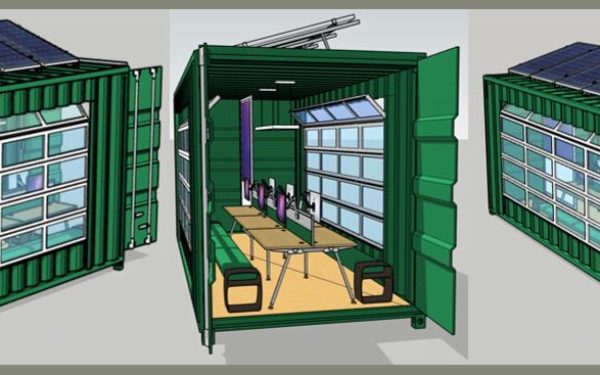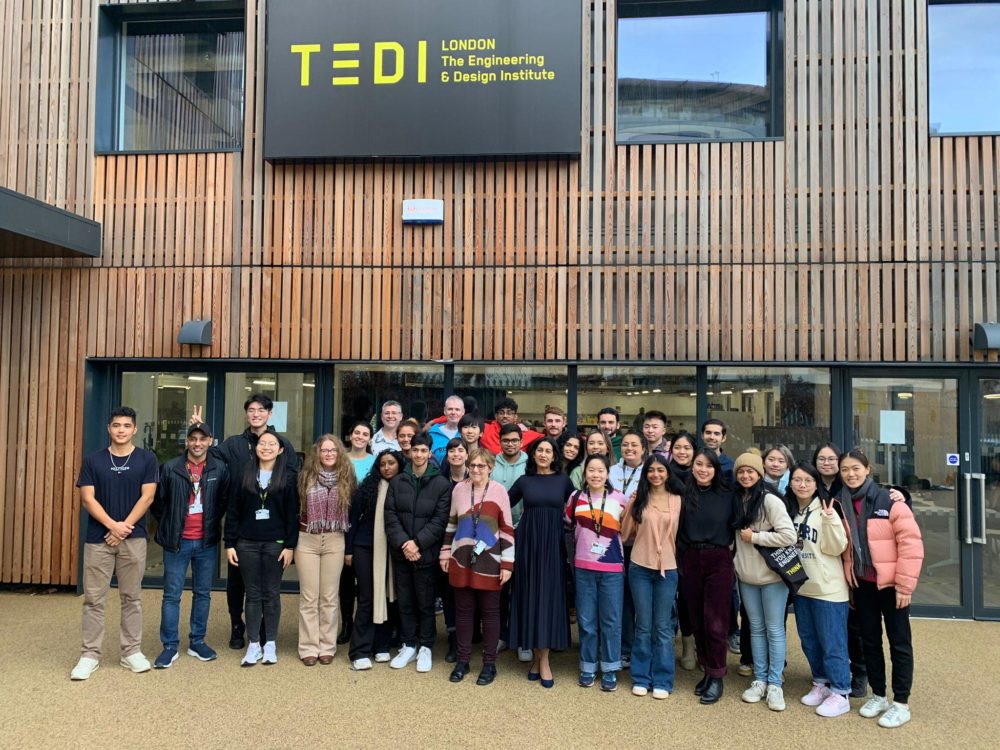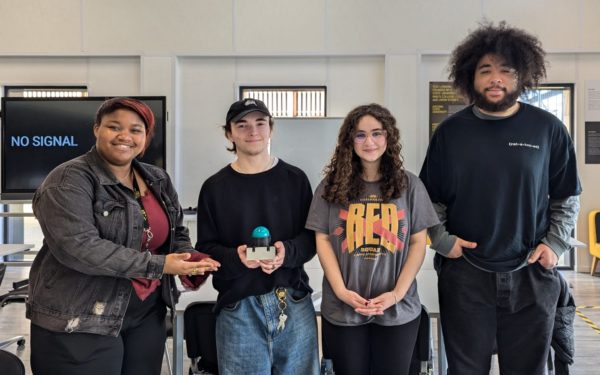
Winter school students launch community repair initiative

Our 2023 winter residential school came to an end last week, after approximately 30 students – mostly from UNSW Sydney, one of our founding partner universities – collaborated on a project over a three-week period.
The programme saw visiting students tackle the topic of the right to repair and reducing e-waste for an improved circular economy, and they were tasked with solving a real-world challenge within the context of the local Canada Water community. The students’ time at TEDI-London wrapped up with a community repair event on campus, run by the winter school cohort in collaboration with Restart, a social enterprise based in London.
During the launch event last Friday, members of the Canada Water community arrived on campus with their slow or damaged small electrical devices and appliances to be diagnosed and, if possible, fixed. Our winter school students worked alongside their teaching technicians and local, technically-savvy volunteers, to encourage guests to restore their belongings wherever possible, and minimise the amount of electronic waste (e-waste) they produce. With the help of repairers, guests were also invited to make their own attempts at restoring their electronic goods, providing an opportunity to learn new skills and develop the confidence to undertake other repair tasks in the future.
Through leveraging their own knowledge around circular economy alongside their practical repairing skills, the students were able to divert 7 electrical items from landfill at the launch event alone – a saving of 26.8kg in carbon emissions.
Preparing a long-term community repair initiative
The event was the first of an ongoing series, for which each student team developed distinct solutions to support the overall initiative. This made sure that in addition to repairing as many damaged items as possible, the students were able to encourage community engagement, educate new repairers, and make use of unrepairable items to further reduce e-waste. The blueprint that the winter school cohort has developed can be used going forward to run a sustained repair and circular design initiative at TEDI-London, featuring:
- Regular repair events during which members of the public can bring their damaged items to be diagnosed and, if possible, repaired.
- Art competitions for younger members of the community to engage with, where safe materials gathered from any non-repairable items are available for creative projects. This not only creates excitement around the initiative, but familiarises participants with practical work, building their confidence to carry out their own repair tasks in the future.
- Educational sessions that are open for a small fee to the public. These can be run in between repair events to teach members of the community how to become repairers themselves. After developing this new skill, they can then carry out their own repairs rather than relying on the events on campus, or even volunteer at the events to help others reduce their e-waste generation.
- Website that can be used to engage the community and inform them about upcoming events, classes, competitions, as well as publishing information about how many items were diverted from landfill at each event.

“We loved the opportunity to work with such an open brief; we’re used to being given a specific problem to solve, whereas during this project we were presented with the key contextual information we needed to identify a specific problem before solving it. This approach meant that each team supported the overall initiative in a unique way, rather than everyone coming up with the same idea. Our team realised that people with broken items outnumbered those with repair skills, so we came up with a business model to run educational sessions during each event, which will help the overall initiative make an even bigger impact.”
Jessica, Anusha, and Layla, TEDI-London 2023 winter residential school students
Learning from industry experts
Before working in teams to kick-start their initiative, our 2023 winter school cohort were supported by TEDI-London staff and industry experts to learn about the importance of circular design principles and economy, as well as understanding the financial and logistical implications of how to implement their own initiative. Supporting industry partners included RS Group, BIOHM, Korn Ferry, and ANSYS.
“Like the projects that comprise TEDI-London’s main degree curriculum, it was fantastic to see how the 2023 winter school project helped the students understand the importance of circular economy, and to see this reflected in the teams’ outputs. Having worked with several universities’ engineering programmes in the past, values such as sustainability and global responsibility are often overlooked, despite engineering students having the power to make real, positive change once they graduate. I’m proud to work so closely with a university that is paving the way for conscientious, ethical engineers of the future, and preparing them properly for the challenges to come.”
Isabella Mascarenhas, Vice President, Grass Roots Education & Social Impact at RS Group
Are you interested in collaborating with us on a project or through part time work? Let us know here.
More News articles

147 students from 21 countries to tackle dementia at TEDI-London summer school
